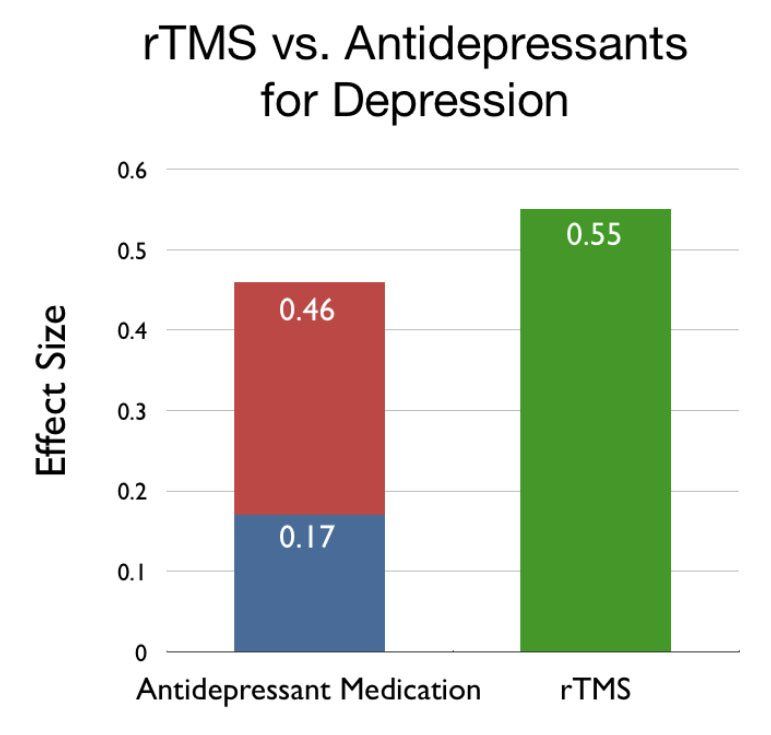Repetitive Transcranial Magnetic Stimulation
What is Repetitive Transcranial Magnetic Stimulation Therapy
Repetitive Transcranial Magnetic Stimulation (rTMS) is a form of therapy used to address neurological conditions in the brain, most notably depression. rTMS uses electromagnetic induction to induce weak electric currents in the brain using a rapidly changing magnetic field; this can cause activity in specific or general parts of the brain with minimal discomfort, promoting normal brain function.
A total of 289 studies on rTMS were published between 1990 and 2008, testing rTMS as a treatment tool for various neurological and psychiatric disorders including migraines, strokes, Parkinson's disease, dystonia, tinnitus, depression and auditory hallucinations. A meta-analysis in 2008 found rTMS effective for depression, with a greater effect size than antidepressant medication. Interestingly, rTMS was more effective in the absence of antidepressant medication than it was when used in conjunction with antidepressant medication.1

